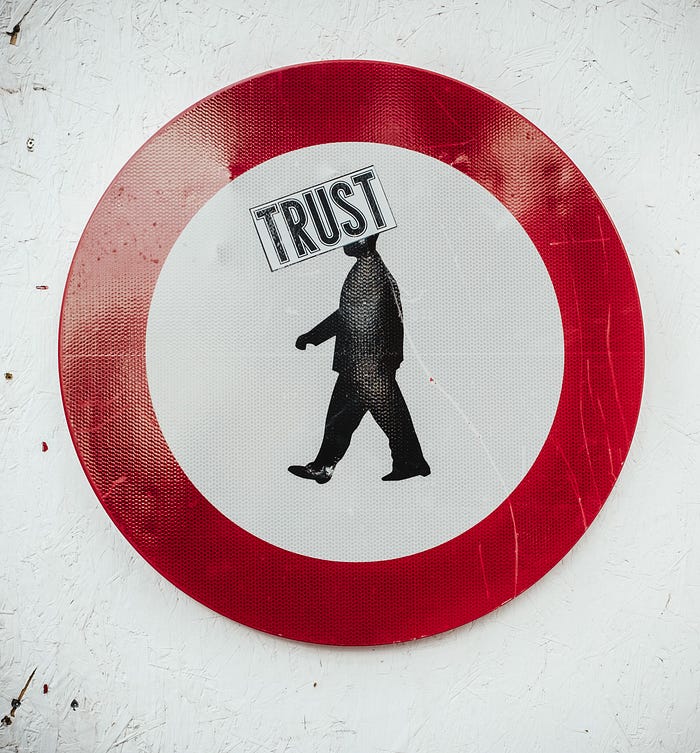Thanks to social media, we know too much and not enough about the purveyors of news in America.

These days, it seems like everyone has an idealogical axe to grind.
Thanks to the rise of popular social media platforms like Twitter, more people have a place to grind those axes, 24/7. Or at least, the 1 in 5 Americans who use Twitter do.
“I thought once people were able to freely exchange thoughts and ideas, the world would automatically become a better place,” lamented one Twitter founder famously, once upon a time, before uttering the biggest understatement in the history of Silicon Valley, perhaps the biggest understatement in the history of the whole world: “I was wrong about that.”
Truer words were never spoken: Finding out what everyone thinks about everything has been a mixed blessing at best.
First of all, it isn’t as clear-cut out there as we’d like to believe: Good people aren’t all good; terrible people occasionally do some good in the world. Most people are just doing the best they can with what they have, trying to get through the day, a mixture of both.
We’re all, like Twitter’s overly-optimistic founder, a bit more wise to humanity’s unpleasant sides these days. Courtesy of the microscope of social media, we find the world full of a million shades of gray.
Extremists on both sides of the political aisle, as well as opportunistic mercenaries in the media, love to define the edges, they thrive on absolutes, on dogmatic pronouncements, reductive reasoning, and repeating hyperbole until it is accepted as fact.
Well, they would: They have to win elections and sell newspapers.
Here in the real world, most of us live in the trenches of the vast middle ground, with cousin Perry, who is smart, successful, a good parent, an excellent bowler who volunteers at an animal shelter on weekends and thinks Tulsi Gabbard, Donald Trump, and Jill Stein are agents of the Russian government.
Likewise, neighbor Frank; who grows prize roses, plays chamber music for disabled veterans in hospice, and believes Bill Gates is trying to depopulate the planet.
It isn’t that most of the people we know have at least one opinion someone might find objectionable somewhere in their moral character: It’s that everyone we know, including ourselves, harbor beliefs not everyone agrees to be true.
For many of us, that includes a belief in God, in an afterlife, in a divine creation process; however odd, unlikely, dangerous or downright untrue those theories might seem to others.
We might have known Perry and Frank for years, perhaps all their lives. Those subjects might never have come up in conversation but for the rise of Facebook.
The siren song of social media convinced many of us to lay it all out there, ostensibly in hopes of meeting the likeminded. If we ever hoped to convert the opposition, that laughable hope was in vain.
Thanks to our love of logical fallacies like confirmation bias, social media users have easily been able to insulate themselves- including news banners, ads, feeds- inside a safe online space designed to reflect and reinforce an existing worldview.
Nowhere has this phenomenon, including the baring of our souls into echo chambers online, been more pronounced, nor the impact more destructive, than in the media.
Trust in mainstream, corporate media sources is dwindling lower than the audience of the Daily Show. Americans have tuned out, in record numbers, from media outlets, online platforms, and news publications.
The reasons are myriad, but one of those reasons has certainly been the level of bias revealed by media personalities, journalists and news program anchors in previous years.
Only 1 in 5 Americans is on Twitter: 5 in 5 media personalities, news content creators, and journalists are on Twitter.
Of course all those talking heads are people, too: They each have their own set of beliefs, morals and political affiliations. The act of revealing those beliefs so openly, even reveling in them, hasn’t universally inspired trust in news networks and their affiliates.
Worse, for trust in the media, birds of a feather have been flocking a little too closely together. The result has been a homogeny of political, moral, religious and social beliefs in major, mainstream news outlets.
Before the advent of social media, most audience members might never have known the politics of the person delivering the news. Now, it has become impossible to ignore.
Once a mere pretext, the exposure of the personal biases of people whose vocations and very livelihoods depend on impartiality has caused a catastrophic collapse in trust.
Revealing personal beliefs and values systems may have humanized media personalities, even endeared them to some. But human beings are fallible, frequently wrong, and seldom good at recognizing or admitting it.
By revealing a personal political and social belief systems, journalists have underlined their fallibility in every by-line.
(contributing writer, Brooke Bell)